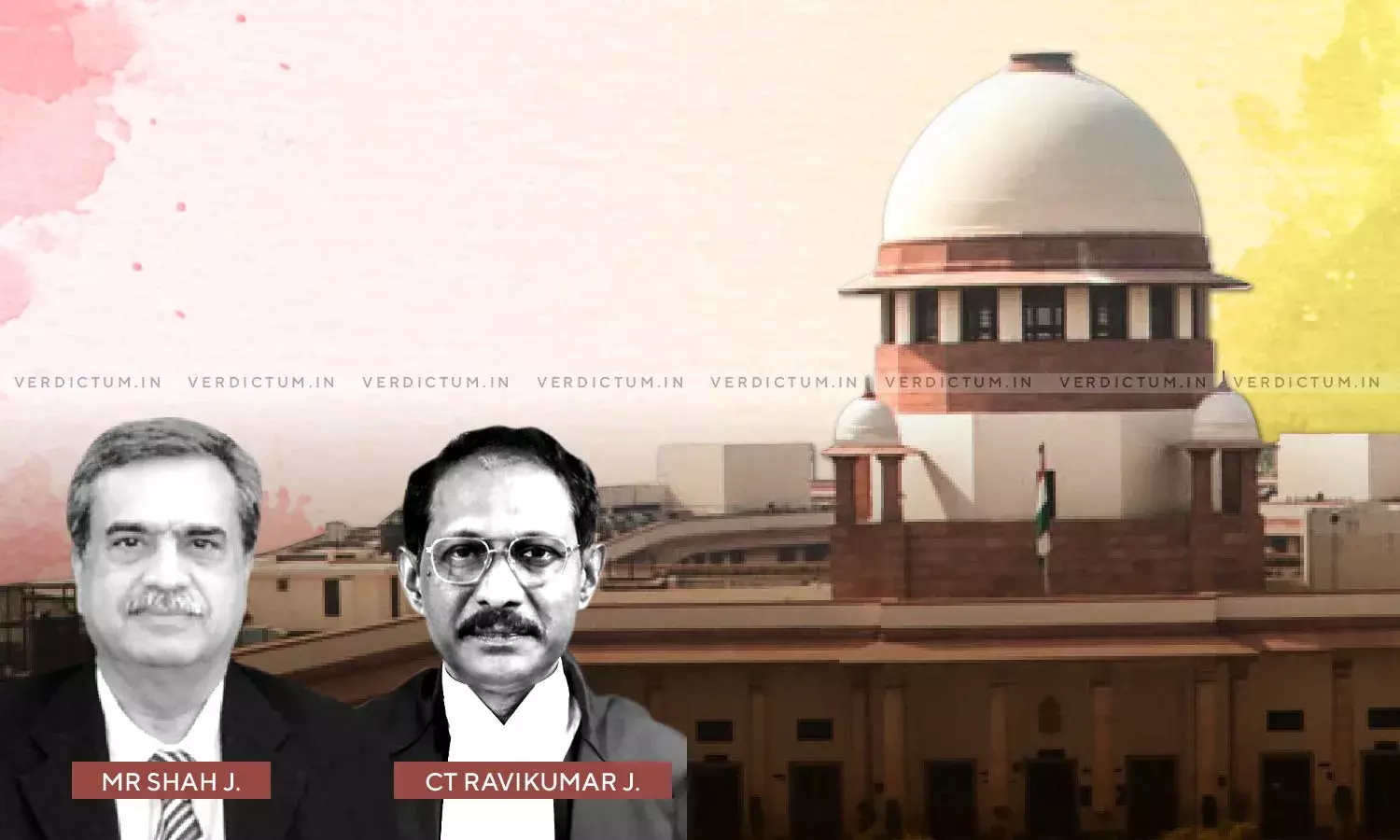Purpose Of Charity Should Not Be Conversion- SC Observes While Considering PIL Against Deceitful Religious Conversions
The Supreme Court today adjourned the petition filed by Advocate Ashwini Kumar Upadhyay seeking directions to the Centre to take steps to control forceful and deceitful religious conversions to December 12, at the request of the Center. The Court said that it is rejecting objections to the maintainability of the petition.
The Bench of Justice M. R. Shah and Justice C. T. Ravikumar observed during the brief hearing, "Everybody has a right to choose religion. But that does not mean that you can convert by luring. If you want to help a particular community, you help. But the purpose of charity should not be conversion. Every good work is welcome. But what is required to be considered is the intention. The intention must be very clear".
The Bench ordered after the brief hearing, "The Union of India to file a detailed counter after obtaining necessary information from states regarding anti-conversion laws and other relevant information".
Solicitor General Tushar Mehta submitted that the Center is gathering data from the states. He submitted that the state of Gujarat has a strong law in this regard and that a stay has been granted with respect to the law. He was asked by the Bench to mention that matter before the CJI.
He also submitted that there are laws which prescribe a mechanism with independent persons to determine whether conversions are on account of allurement or due to religious or philosophical change of heart. "You cannot propagate with an intention to convert", Solicitor General submitted with respect to Article 25.
The Bench expressed displeasure at the request of the Center for adjournment. This is a very serious matter, the Bench observed.
Senior Advocate Chander Uday Singh appeared for the Kerala Yukthivadi Sankham, saying that it is a group of rationalists. He opposed the petition stating that it is not maintainable. He submitted that similar petitions have been withdrawn in the past without the liberty to approach again. The Court responded by saying that it is rejecting the arguments on the maintainability of the petition and will hear the petition.
"Any rationalist should support the petition", Tushar Mehta responded.
"Don't take this as an adversarial litigation. This is a very serious issue," Justice Shah said.
Senior Advocate Arvind Datar appeared for the Petitioner. He submitted that the states who want to file their response should file it. The Bench then said that the Center has been asked to file an affidavit based on information gathered from the states.
Senior Advocate Sanjay Hegde who appeared for an intervenor opposed the petition.
When a lawyer sought to oppose the petition, stating that he is appearing for a priest, Tushar Mehta responded by saying that a priest is not concerned with the proceeding unless he is involved in religious conversions.
Background
The plea filed by Ashwini Kumar Upadhyay seeks direction to the Law Commission of India to prepare a report and a bill to control religious conversion by intimidation, threatening, and deceivingly luring through gifts and monetary benefits.
On the previous hearing, the Centre was directed to file its response to the plea. The Court had observed that religious conversion by force or allurement is a very serious issue that can affect the freedom of religion and conscience and the security of the nation.
Upadhyay has said in his petition filed through Advocate Ashwini Kumar Dubey that "There is not even on district which is free of religious conversion by 'hook and crook and the carrot and the stick.' Incidents are reported every week throughout the country where conversion is done by intimidating, threatening, deceivingly luring through gifts/monetary benefits and also using black magic, superstition, miracles but Centre has not taken stringent steps to stop this menace."
The state of Gujarat has filed an affidavit in the case stating that the right to freedom of religion does not include a fundamental right to convert other people to a particular religion.












